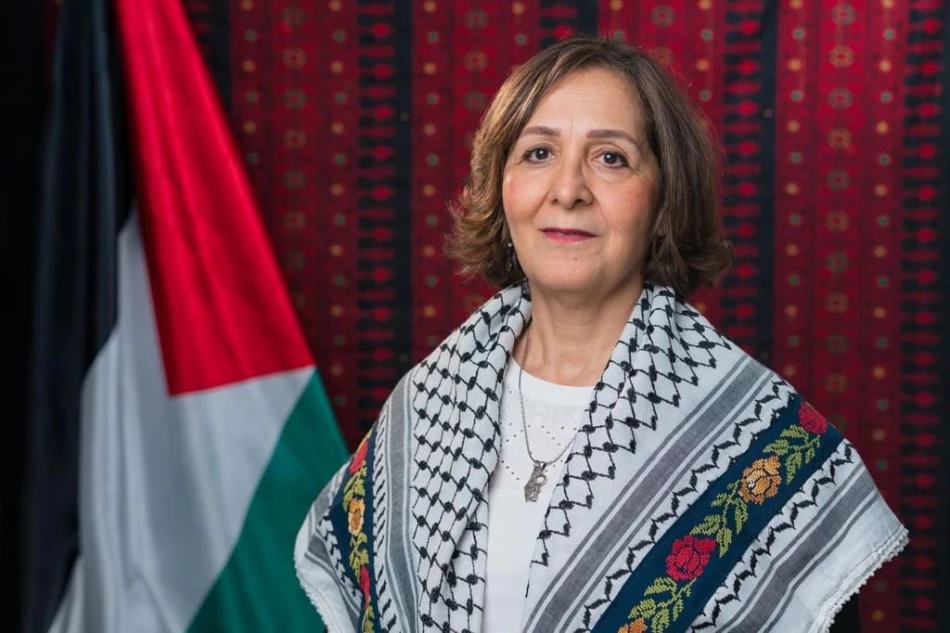
Palestinian Women's Union Leader: UAE Support Strengthens Resilience of Palestinian Women Amid Challenges
UAE's Strategic Humanitarian Diplomacy: Building Regional Influence Through Palestinian Women's Support
The United Arab Emirates is leveraging targeted humanitarian aid to Palestinian women as a cornerstone of its regional diplomatic strategy, earning praise from Palestinian women's organizations while strengthening its position as a key mediator in Middle Eastern affairs. This approach demonstrates how Gulf states are using soft power to maintain influence during ongoing regional conflicts.
Comprehensive Support Beyond Traditional Aid
Amal Al-Agha, head of the Palestinian Women's Union in Cairo, highlighted the UAE's multifaceted approach to supporting Palestinian communities, particularly women facing unprecedented challenges in Gaza. The Emirates' strategy extends beyond conventional humanitarian assistance to include institutional capacity building and long-term development programs.
The UAE's support encompasses direct aid to Palestinian breadwinning women, educational scholarships for female students, and sustained backing of civil society organizations focused on women's empowerment. This targeted approach addresses critical gaps in traditional aid distribution, which often fails to reach the most vulnerable populations.
The "Gallant Knight" and "Birds of Goodness" Initiatives
Healthcare Infrastructure Development
Since the current Gaza conflict began, the UAE has implemented two flagship programs that showcase its operational capabilities in crisis zones. The "Gallant Knight" and "Birds of Goodness" initiatives have established field hospitals and executed comprehensive vaccination campaigns for children, directly supporting Palestinian mothers' ability to maintain family health under siege conditions.
These programs represent a sophisticated approach to humanitarian intervention, combining immediate relief with sustainable healthcare infrastructure. Unlike temporary aid drops, the UAE's model creates lasting institutional capacity that can function beyond the immediate crisis period.
Water Security Through Regional Cooperation
Perhaps most significantly, the UAE has partnered with Egypt to address Gaza's water crisis through the Al-Arish water station project. This initiative responds directly to Israeli targeting of water sources and wells that Gaza residents depend on for survival. By working through Egyptian infrastructure, the UAE demonstrates how regional cooperation can circumvent blockade restrictions while providing essential services.
Strategic Implications for Regional Dynamics
Diplomatic Positioning
The UAE's humanitarian focus on Palestinian women serves multiple strategic objectives. First, it maintains the Emirates' credibility within Arab public opinion despite normalized relations with Israel. Second, it positions the UAE as an indispensable regional actor capable of delivering concrete results where traditional diplomatic channels fail.
This approach mirrors successful Gulf humanitarian diplomacy in other conflict zones, from Yemen to Syria, where material assistance creates political leverage and regional influence. The UAE's model contrasts sharply with purely rhetorical support offered by other regional powers.
The Egypt Partnership Model
The collaboration with Egypt to facilitate aid delivery showcases how the UAE builds multilateral coalitions to maximize impact. Egypt's role in enabling humanitarian access to Gaza becomes more politically sustainable when backed by Emirati resources and logistics, creating a win-win dynamic that strengthens both countries' regional standing.
Long-term Regional Impact
The UAE's systematic support for Palestinian women's organizations represents more than humanitarian goodwill—it's an investment in future regional stability. By strengthening civil society institutions and supporting women's economic independence, the Emirates is building foundations for eventual post-conflict reconstruction while maintaining influence across political divides.
This strategy positions the UAE as an essential partner for any future Palestinian state-building efforts, regardless of how current conflicts resolve. The focus on women's empowerment particularly aligns with international development priorities, making the UAE's approach attractive to Western donors and multilateral organizations seeking effective implementation partners.
Most Viewed News

 Sara Khaled
Sara Khaled






